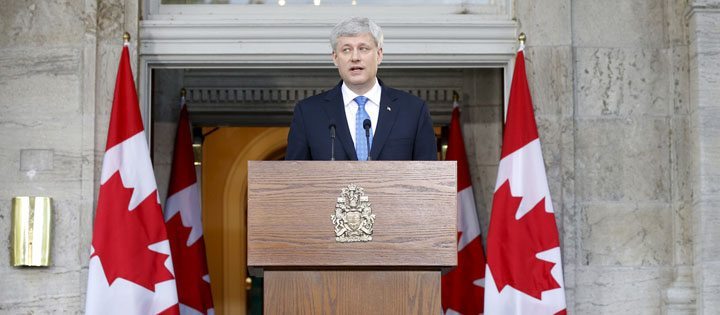Prime minister Stephen Harper made it official this morning and kicked off the longest election campaign since the 1872.
Canadian voters go the polls Oct. 19, which makes the campaign 78 days long. The last election campaign to come close was 74 days in 1926.
Shortly after speaking to gov. general David Johnston to dissolve Parliament, Harper stressed the importance of the economy and global security.
While agricultural issues don’t usually dominate federal election campaigns that could change this time around.
Read Also

Research looks to control flea beetles with RNAi
A Vancouver agri-tech company wants to give canola growers another weapon in the never-ending battle against flea beetles.
Sylvain Charlebois, a professor at the University of Guelph, said supply management is a huge issue for a government to deal with and it could become an election focal point.
Any change to the system affects everyone from farmers to processors to retailers to consumers and more.
“There’s a lot of fiscal baggage related to supply management,” Charlebois said. “It’s not just about farmers. It’s about banks …. There’s lots of people. There’s $30 billion worth of quota.”
He said an election campaign is a good time for Canadians to debate agriculture and food.
The Canadian Federation of Agriculture has identified farm labour and risk management programs as its election priorities.
“Our work is seasonal and can fluctuate dramatically with the markets, consumer demands and weather patterns,” said president Ron Bonnett after the recent CFA board meeting. “The CFA has developed recommendations for industry and government and will be urging these priorities be included in party platforms in the upcoming election.”
Bonnett said the next agricultural policy framework, social license and the environment are all issues that should be addressed by the parties.
The CFA also intends to host an agriculture leader’s debate in Ottawa as it did in 2011.


















